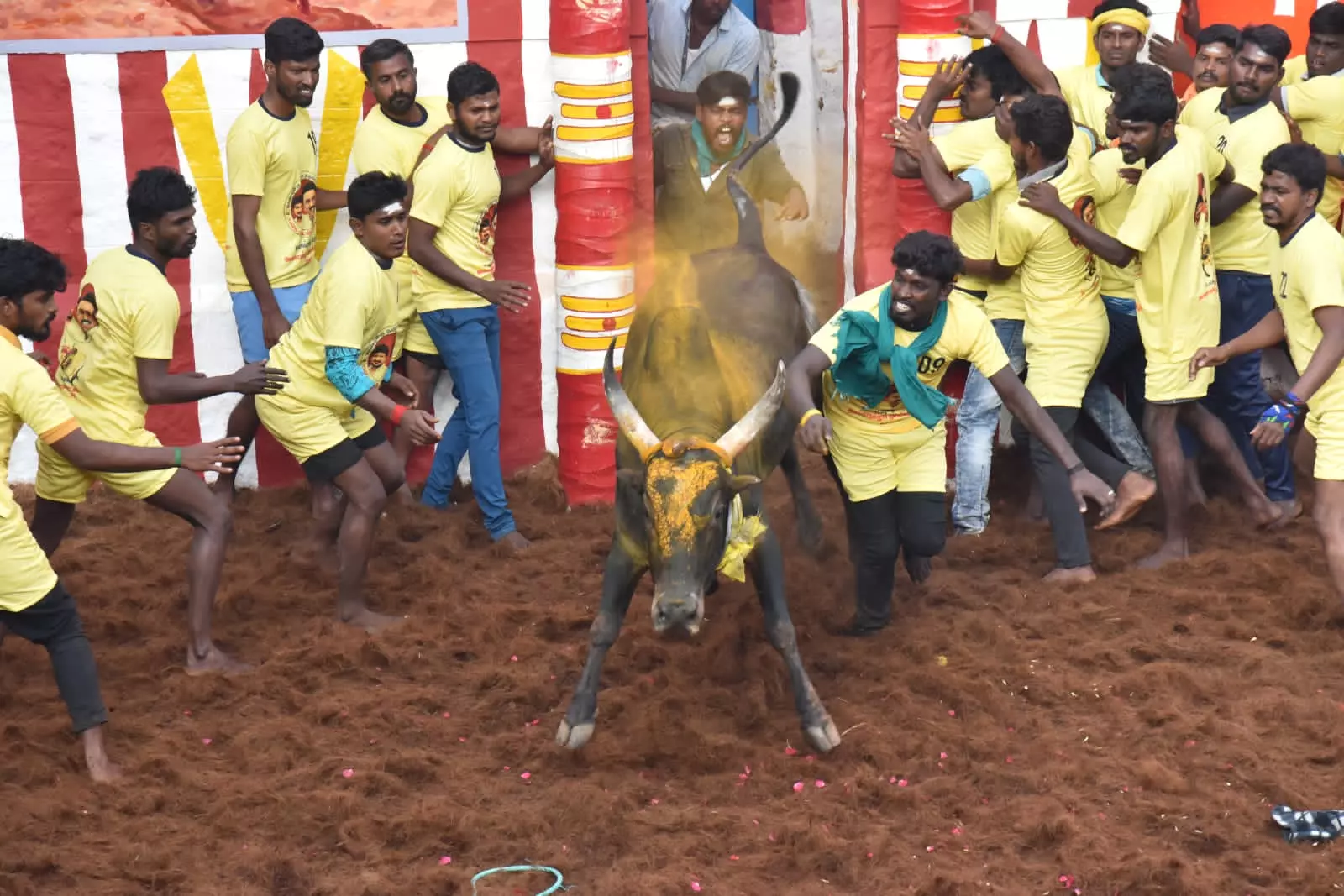Law in Sports
Bovine sports, including Jallikattu and Kambala, upheld as legal by SC — Explained
The Supreme Court of India has upheld the validity of Jallikattu, bullock cart races and Kambala in Tamil Nadu, Maharashtra and Karnataka, overturning a 9-year-old judgement.

The SC said the previous judgment had erred in stating that “performance of Jallikattu is not a part of the cultural heritage of Tamil Nadu.” (Twitter/@ptrmadurai)
The Supreme Court, in its judgment on May 18, 2023, upheld three State legislations amending the Prevention of Cruelty to Animals Act, 1960 that legalised the conduct of bovine sports in India.
What’s the matter?
In 2014, the Supreme Court in Animal Welfare Board of India vs A. Nagaraja and Others had outlawed the sports of Jallikattu and Bullock Cart Racing that is commonly practiced in Tamil Nadu and Maharashtra, respectively. Besides Maharashtra, bullock cart racing is also conducted in Punjab, Haryana, Kerala and Gujarat. Meanwhile in Karnataka, a similar race involving water buffaloes is known as ‘Kambala’.
These sports were declared to run contrary to the provision of the Prevention of Cruelty to Animals Act, 1960 as they caused unnecessary pain or suffering on animals.
Following this judgment, and a huge public outcry – especially in Tamil Nadu, three States – Tamil Nadu, Maharashtra and Karnataka passed legislations in 2017, amending the 1960 Act.
These three State Amendment Acts were subsequently challenged in the Supreme Court, the final judgment of which was pronounced on Thursday.
Court Unquote
The five judge Supreme Court bench concluded that sufficient safeguards have been put in place in the State Acts, to ensure that the animals don’t suffer any unnecessary pain. The Court was of the opinion that the previous Supreme Court judgment had erred in stating that “performance of Jallikattu is not a part of the cultural heritage of the people of the State of Tamil Nadu.”
Interestingly, the Court favourably compared bovine sports with other animal sports like horse racing – and noted that the latter is allowed:
“Horse is also a sentient animal. But the fact remains that by making them perform in races, some element of pain and suffering must be caused to horses. Here, the focus shifts from causing pain and suffering to the degree of pain and suffering to which a sentient animal is subjected to while being compelled to undertake certain activities for the benefit of human beings.”
While upholding the three State legislations, the Court also sounded a note of caution, directing the District Magistrate and other competent authorities to ensure strict compliance of the law, and its various rules and notifications.
The administrators of these indigenous sports have expressed happiness at the verdict.
Mangaluru Kambala Samiti president Capt Brijesh Chowta told TNN, “Justice is being delivered to the people of Tulunadu, who have been fighting for kambala. The decision of the Supreme Court will help kambala organisers to make events more meaningful."
However, animal rights organisation People For Ethical Treatment of Animals (PETA) India have expressed displeasure.
A statement said, "Jallikattu stands in favour of cruel events that have consistently caused the suffering and death of animals as well as Tamil men and children. It makes our country look regressive in the eyes of the world."
Larger Implications
The judgment has underscored that unlike human beings, animals don’t enjoy fundamental rights. Also, the case reiterates the position that the question of deciding whether any activity is part of a cultural tradition of a region or community is best left to the legislature.
As a consequence of this verdict, it will be interesting to see if traditional animal sports in India get a fillip in terms of safer organization, modern marketing approaches, corporate sponsor support and ensuing wider popularity.
